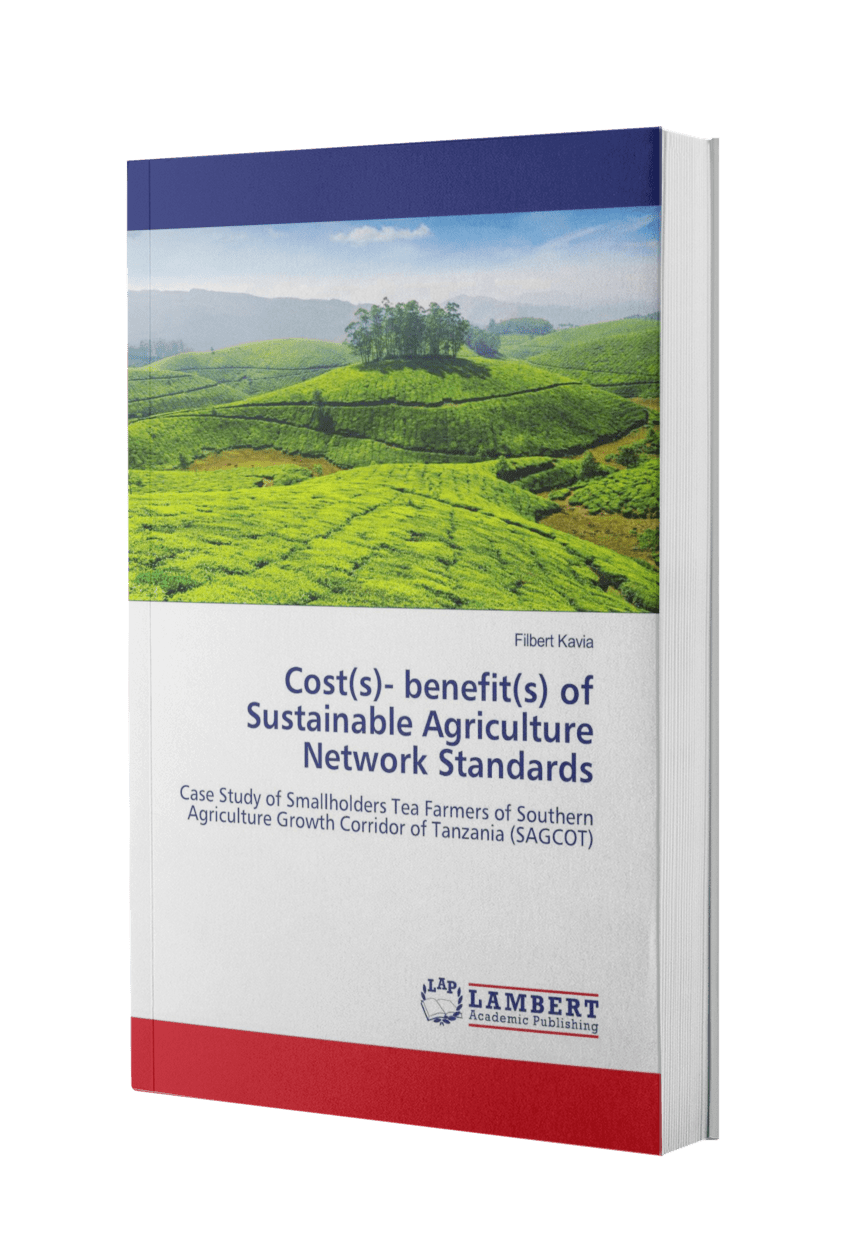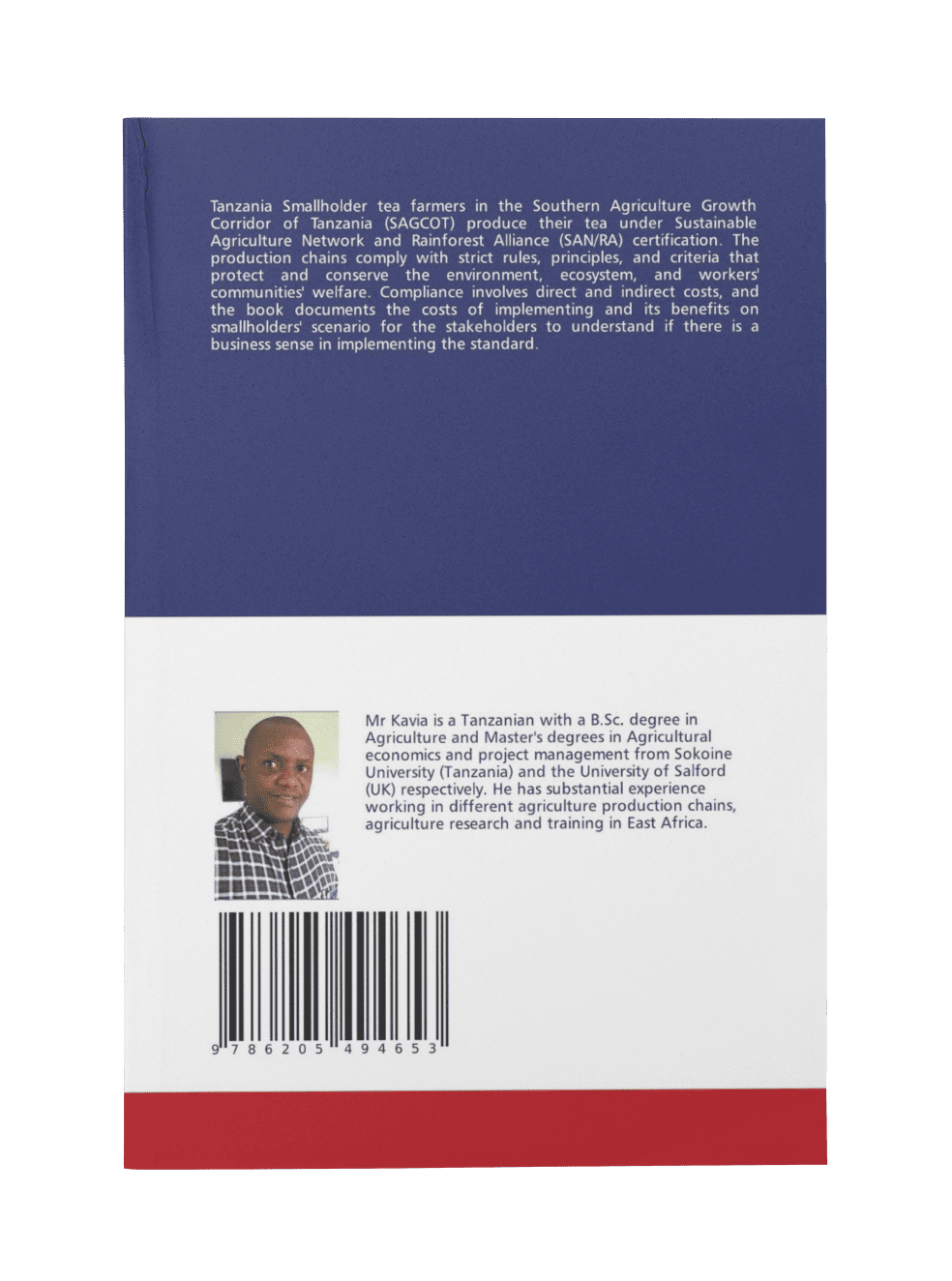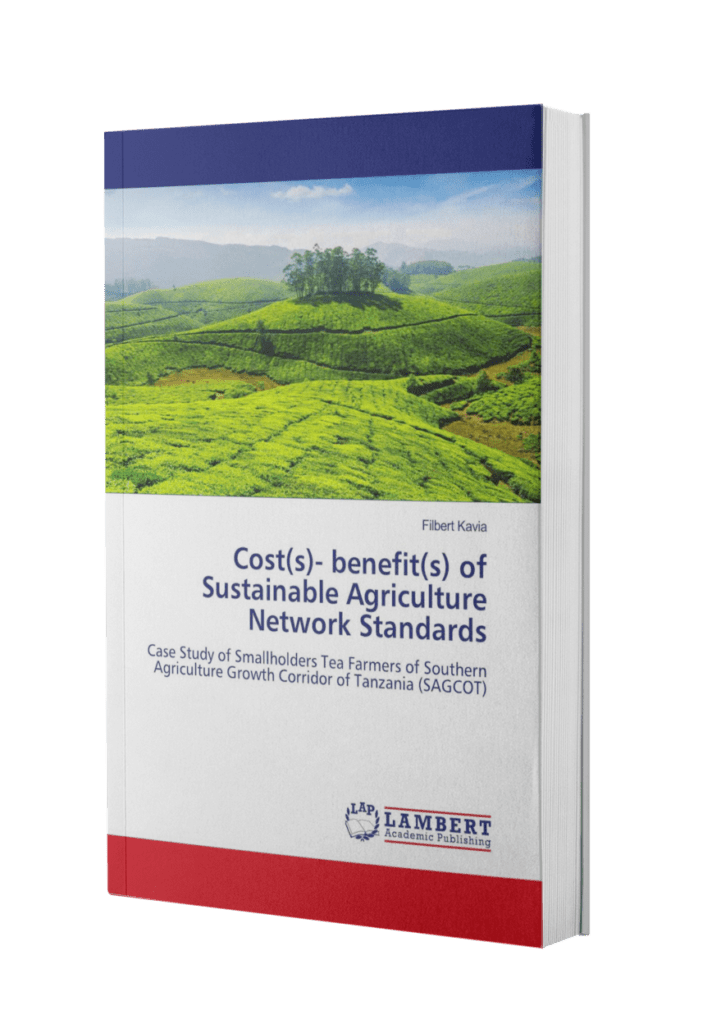ABOUT THE BOOK
Tanzania Smallholder tea farmers in the Southern Agriculture Growth Corridor of Tanzania (SAGCOT) produce their tea under Sustainable Agriculture Network and Rainforest Alliance (SAN/RA) certification. The production chains comply with strict rules, principles, and criteria that protect and conserve the environment, ecosystem, and workers’ communities’ welfare. Compliance involves direct and indirect costs, and the book documents the costs of implementing and its benefits on smallholders’ scenario for the stakeholders to understand if there is a business sense in implementing the standard.
ABOUT THE AUTHOR
FILBERT KAVIA
My name is Filbert Yona Kavia born end of July 1970 in the basket of food crops in the southern highland regions of Tanzania. My career and trustworthiness started in my family agriculture background, and my passion for smallholder agriculture centered on transparency and fair trade for smallholder agribusiness. I underwent a bachelor’s and master’s degree in agriculture general and agricultural economics at the Sokoine University of Agriculture, Tanzanian, respectively. Finally, I concluded my professional studies at the University of Salford in the United Kingdom, awarded a Master’s in Project management. As a professional agricultural economist and project management specialist. I started my work carrier journey working with the Ministry of Agriculture in Tanzania under the research and training department as an agricultural researcher in the lake region of Tanzania. I was then employed with the International Institute of Tropical Agriculture in Tanzania and worked in the lake, central and southern highlands zones of Tanzania.
In the 2020s, I change my carrier from agriculture research to smallholder commercial production carrier. I was employed with Tanzania development partners, The wood Foundation, and its philanthropic partners to work with smallholder farmers in Tanzania and Rwanda in tea value chains to increase and improve their income and livelihood. In the commercialization of smallholder production, the main focus was improving production, productivity, quality, and market competitiveness. On the quality and marketing competitiveness, the farmers were linked and implemented different world private voluntary sustainable Agriculture standards, namely Rainforest, fairtrade, organic, Global Gap, etc. The standards focus on production, marketing systems, and management of sustainable standards pillars of production, namely: social, economic, and environmental, to improve farmers’ income and livelihood. The standards focus more on market sustainability, competitiveness, premium price, high revenue, social inclusion, and trade transparency. Experiences I got on working with smallholder farmers on assuring professional services, sustainable production, and fair markets in East Africa. I wrote “Cost – benefits analysis of sustainable production standards case study of Tanzania”: I hope the reader will enjoy an understanding of the Cost incurred in sustainable production and its benefits in smallholder farmer’s value chain in Tanzania.
New Release
YES, I want to buy this book!
Click on the button below:








